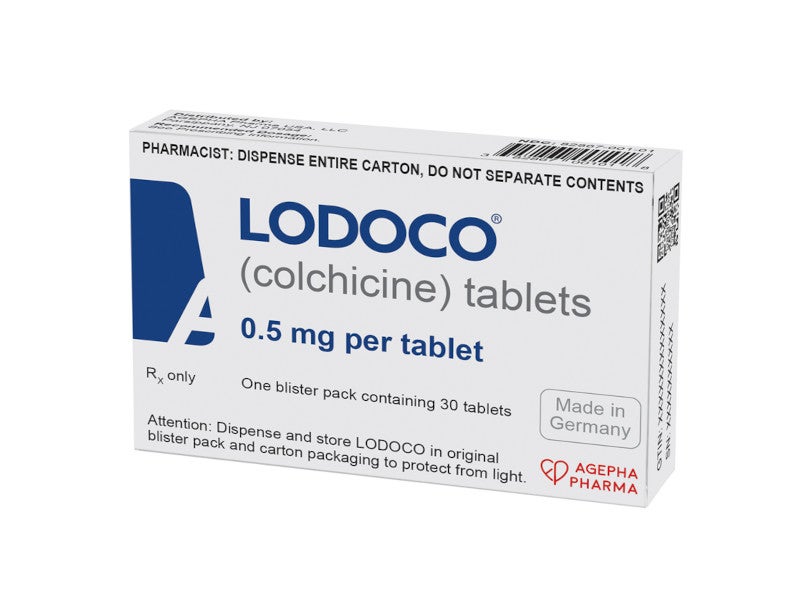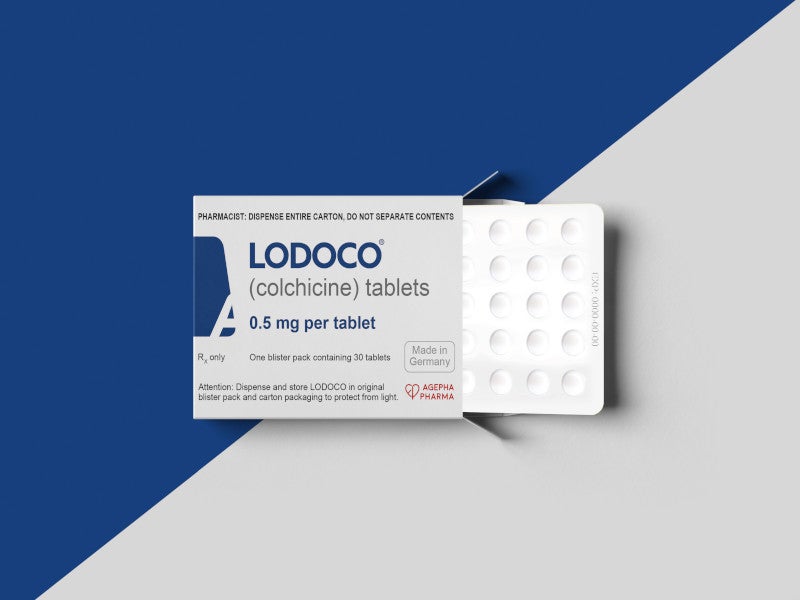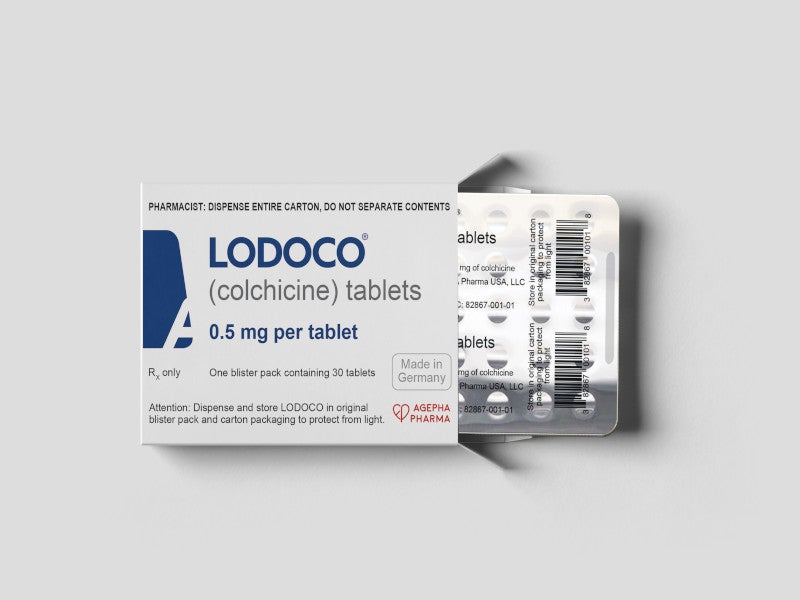LODOCO® (colchicine tablets) is an anti-inflammatory cardiovascular drug indicated to reduce the risk of myocardial infarction, stroke, coronary revascularisation and cardiovascular death in adults with established atherosclerotic disease or with multiple risk factors for cardiovascular disease.
Developed by AGEPHA Pharma, a pharmaceutical company based in Dubai, LODOCO is available as white to slightly yellow, round, biconvex tablets in 0.5mg dosage strength.
Formulated as a once-daily, continuous-use oral treatment, LODOCO can be used either alone or in combination with standard-of-care lipid-lowering drugs and other therapies for the effective reduction of the risk of heart attack and stroke.
The drug was approved by the US Food and Drug Administration (FDA) in June 2023, following a priority review.
Cardiovascular disease causes and symptoms
Cardiovascular disease (CVD) is a broader term for conditions that affect the heart or blood flow, including high blood pressure, strokes and vascular dementia. CVD also covers conditions affecting the heart muscle and heart valves, and irregular cardiac rhythms.
Common risk factors for CVD include smoking, stress, alcohol, high blood pressure, cholesterol, obesity, diabetes, a family history of heart disease, ethnicity, sex and age.
Symptoms include chest pain, weakness, shortness of breath, irregular pulse, palpitations and swelling of limbs.
Atherosclerosis is characterised by the development of plaque in arteries, causing them to narrow and limit the flow of oxygen-rich blood to vital organs. The condition can lead to heart attacks and strokes and is referred to as coronary artery disease, acute coronary syndrome, peripheral artery disease and cerebrovascular disease. Inflammation plays a crucial role in the development and progression of atherosclerotic cardiovascular disease (ASCVD).
Approximately 26 million people in the US are living with ASCVD, which causes 400,000 deaths a year. Heart disease is the primary cause of death in the US, with 800,000 people experiencing a heart attack each year.
LODOCO’s mechanism of action
LODOCO contains colchicine, which is an alkaloid that changes cytoskeletal activities by inhibiting β-tubulin polymerisation into microtubules, preventing activation, degranulation and migration of neutrophils, a type of white blood cells.
It may also disrupt the intracellular assembly of the inflammasome complex in neutrophils and monocytes, which mediates interleukin-1β activation.
These anti-inflammatory effects align with clinical findings that colchicine lowers high-sensitivity C-reactive protein. The mechanism for preventing major cardiovascular events is not known.
Clinical trials on LODOCO
LODOCO’s safety and effectiveness in preventing heart attack and stroke were established by data from randomised, placebo-controlled, double-blind clinical trials, including LoDoCo2 (low-dose colchicine for secondary prevention of cardiovascular disease 2) trial, along with other supportive studies.
In the LoDoCo2 trial, 5,522 individuals were randomised to receive either colchicine 0.5mg once daily or placebo, and followed for a median of 28.6 months.
The primary endpoint was a composite of cardiovascular death, spontaneous myocardial infarction, ischemic stroke or ischemia-driven coronary revascularisation.
The drug showed a 31% reduction in cardiovascular events risk, driven by reductions in both myocardial infarction and ischemia-driven coronary revascularisation, compared to placebo.
The most common adverse reactions reported in patients during the clinical trials were diarrhoea, vomiting, stomach cramps and myalgia.





